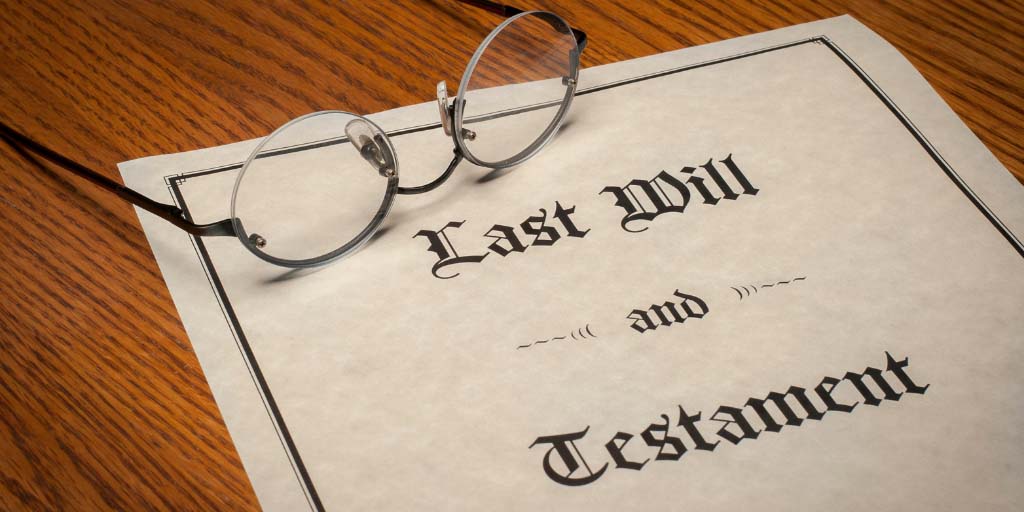Will Disputes in the Digital Age

Will Disputes in the Digital Age
A recent decision of his Honour Judge Klein has established that in certain circumstances it is possible to obtain a grant of probate in relation to a Will without having to produce the original of the executed Will.
The case involved a Dr Cooper, who died in July 2019. He was survived by two minor children and their mother from whom the deceased was divorced after a marriage lasting appropriately 13 years.
In 2015 following the break-up of his marriage Dr Cooper began co-habiting with a childhood friend. Dr Cooper suffered from mental ill-health and the divorce proceedings were acrimonious and vitriolic. As a result, from about February 2015 onwards he ceased to have any contact with his children.
In June 2009, whilst still married he had made a Will leaving his estate to his children provided that they reached the age of 21. With their mother acting as litigation friend they sought to have the 2009 Will admitted to probate.
However Dr Cooper’s partner claimed that subsequently, on or about 27 March 2018, he had signed a new ‘homemade Will’ which had the effect of revoking the earlier Will. Under this later Will his partner was left the residue of his estate subject to a small monetary legacy to a school. The later Will recorded that he was not giving anything to his “two estranged children” as “they were fully provided for during the financial settlement of my divorce from their mother”.
Had the partner been able to produce the original signed version of the later Will there would be nothing at all unusual about this case. However, her case was based on having found a draft of the 2018 Will on a computer which Dr Cooper used. Interestingly, the computer upon which the partner claimed to have found the draft 2018 Will was not in the same state as it was when Dr Cooper died, in that the partner had arranged for certain personal data on it to be removed. Dr Cooper was described as being a meticulous record keeper and “technologically competent”.
Both parties instructed computer experts who agreed that the draft of the 2018 Will was:
- first created on 24 January 2018
- last modified on 20 March 2018
- last saved on 20 March 2018 on which date it was copied to the hard drive of the computer where it was ultimately found.
The trial concentrated on three issues:
- Whether the 2018 Will was properly executed.
- What the contents of it were.
- Whether it had been revoked on the basis that where an original Will is known to have existed and was last seen in the hands of the testator but cannot be found on their death, there is a rebuttable presumption that the Will was destroyed by the Will maker with the intention of revoking it.
The judge reminded himself that he was not dealing here with the criminal standard of proof i.e., ‘beyond reasonable doubt’ but with the civil standard of proof namely ‘the balance of probabilities’.
The partner was able to produce the two witnesses to the 2018 will: Mr & Mrs Hartley. Mr Hartley was the partner’s uncle. They gave evidence that they had both signed a document on or about 27 March 2018 which they believed was the Deceased’s will.
Although the Judge slightly preferred the evidence of Mr Hartley to that of Mrs Hartley, he concluded that they were “genuinely trying to tell the truth” and that it was improbable that two witnesses would perjure themselves in respect of the same evidence when they had nothing to gain from doing that.
Although the judge found there were some discrepancies between the evidence of Mr and Mrs Hartley and between their individual witness statements and their own oral evidence in court, he thought that this enhanced rather than detracted from their credibility.
Having considered the evidence “holistically” and relying heavily on the evidence of Mr & Mrs Hartley, the judge concluded that the 2018 Will had been properly executed under s.9 of the Wills Act 1837, the testator having acknowledged his previously written signature in Mr & Mrs Hartley’s presence.
In terms of whether the later Will had been revoked, the judge reminded himself that testators tend to take care of their Wills and keep them safe because they are important documents. That said, he concluded that there was a degree of chaos in Dr Cooper’s lifestyle at the relevant time not only because of his mental ill health but also because he was splitting his time between his own flat and that of his partner.
Since there was no evidence that Dr Cooper had changed from wanting to make significant provision on his death for his partner, the judge decided that it was improbable that he intended to revoke the 2018 Will otherwise than by making a new Will and that he had therefore not destroyed it with the intention of revoking it.
Characterising this case as a sad one, the Judge recognised that because of his decision, the dispute would continue on other grounds unless there was some sort of alternative dispute resolution.
Get in touch with our contentious probate team
To speak to a member of our expert team about a will dispute, contact us today by calling 0330 175 7608 or email us at enquiries@ibblaw.co.uk.
